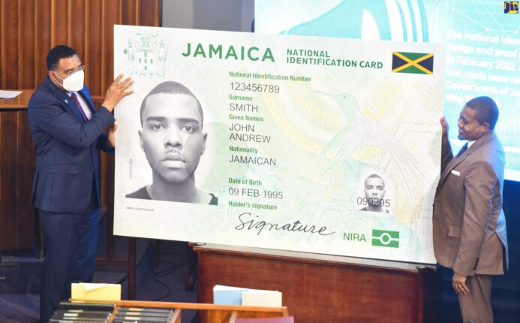Prime Minister Andrew Holness is well accustomed to controversies. From matters relating to his elevation to the top seat in the Jamaica Labour Party, after the exit of former Prime Minister Bruce Golding to the current dilemma concerning his uncertified statutory deductions.
His battles with the nation’s Constitution, which he swore to uphold, are epic.
2013: Holness’ shame with unsigned resignation letters
Jamaica will never forget the imbroglio concerning the unsigned resignation letters that booted two JLP Senators from their seats in 2013
Then Opposition Leader Andrew Holness lost a challenge in the Constitutional Court to keep his appointees Ruel Reid – Principal of Jamaica College and his confidant and businessman Dr Nigel Clarke in the Senate. Holness had used unresigned letters to boot Senators Arthur Williams and Dr Christopher Tufton from the lofty Upper House.
Businessman, Dr. Nigel Clarke, and Principal of Jamaica College, Ruel Reid, were sworn in as Opposition Senators in the Upper House,
Tufton and Williams were appointed to the Senate in January 2012. It is reported that Holness was “deeply concerned about any of them departing from the party’s position in relation to the Caribbean Court of Justice” that was established in 2001 to replace the London-based Privy Council as the region’s final court.
Williams said that as a result all the Senators were required to sign undated letters of resignation and a letter authorising the then Opposition Leader to date and submit the letters to the Governor General.
A request was made for a mass resignation of the opposition senators in 2013, but Williams and Tufton were reluctant to do this. The undated letters of resignation which they had previously signed were dispatched to the Governor General although the matter had nothing to do with the CCJ.
Williams, who has drafted the letters himself, said he did so as he was chief of staff in the opposition leader’s office and the letter was drafted in anticipation of a debate on the Caribbean Court of Justice (CCJ).
Williams said he had signed the letter because of the circumstances in which it was supposed to be used.
Williams, who was once a confidant of Holness, had asked the Constitutional Court to declare whether it was legal for Holness to use an undated letter of resignation to revoke his Senate appointment.
The Constitutional Court ruled that Holness acted unlawfully in the matter and declared that by requesting and procuring unsigned letters of resignation and authorization to use them to remove the Senators, Andrew Holness acted unlawfully and contrary to public policy and inconsistent with the constitution.
The court said the letters were null and void. Williams and Tufton were returned to the Senate.
2019 : Holness’ second Constitutional error
Three years into his second stint as Prime Minister, Andrew Holness had to face another national embarrassment as the Constitutional Court struck down the National Identification and Registration Act he had hasitly rushed through the Parliament.
The case was brought against the government by the former general secretary of the People’s National Party, Julian Robinson on behalf of himself, his constituents in St Andrew South East, and the members of the PNP.
The landmark ruling was handed down by the Full Court comprising Chief Justice Bryan Sykes, Justice Lisa Palmer Hamilton and Justice David Batts. In delivering the judgment, Justice Sykes said certain aspects relating to privacy issues such as the requirement for people to submit biometric information is a breach of persons’ constitutional rights to privacy.
Some US$68 million was earmarked for the implementation of the National Identification and Registration System (NIDS), which the government said was a crucial crime-fighting and doing-business tool.
If the NIDS remained, anyone resident in Jamaica would have been obligated, by law, to register for an identity card, which will require persons to provide unspecified biometric information as proof of identity.
Failure to register for NIDS at the time, would not only be a criminal offence, but preclude people from accessing government services.
2024 : Holness’ third slap by the Constitutional Court
Efforts by Prime Minister Andrew Holness and his government to amend the Constitution to extend the tenure of former Director of Public Prosecutions Paula Llewellyn was ruled unconstitutional.
The Full Court of the Supreme Court, which comprised three judges — Justice Sonya Wint-Blair, Justice Simone Wolfe-Reece, and Justice Tricia Hutchinson Shelly decided.
The Full Court said the only lawful way to extend the tenure of Llewellyn was by agreement between the Prime Minister of Jamaica and the Leader of Opposition.
In July 2023, the Constitution was amended to move the retirement ages of the DPP and the auditor general from 60 to 65.
The Opposition People’s National Party (PNP) challenged the legality of the constitutional amendments.
The move was initially declined by the Public Service Commission (PSC) in May of 2023.
The PSC then cited constitutional limitations on the grant of a second extension, as well as “the refusal of the Prime Minister (Andrew Holness) to grant the extension.”
However, the matter was taken to the Parliamnet and with its power of numbers, the Act to remove the constitutional limitation was passed


